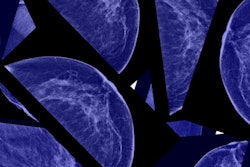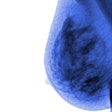Women of Mexican origin in the U.S. are younger when diagnosed with breast cancer, and starting screening at age 50 as recommended by the U.S. Preventive Services Task Force (USPSTF) would result in missed cancers in a third of this population, according to new research published online in the journal Cancer.
Researchers from M. D. Anderson Cancer Center at the University of Texas in Houston found that among women of Mexican origin in the cohort who self-reported breast cancer, 85% reported a family history of breast cancer, and their mean age at diagnosis was 50.5 years (range, 21-80); 49% of women with breast cancer were diagnosed before age 50 (Cancer, August 31, 2010).
The findings fly in the face of the recent USPSTF recommendations, which dictate that women not begin regular mammography screening until age 50, and then undergo exams every other year thereafter. According to this guideline, more than 33% of women in this Mexican-origin population would not have been recommended for mammography screening in time, according to lead author Patricia Miranda, PhD, a postdoctoral fellow in M. D. Anderson's department of health disparities research.
"Our study suggests an impending increase in breast cancer disparities that will affect Mexican-origin women if physicians implement the currently discussed change in recommendations for mammography screening," she wrote.
Miranda and colleagues examined the risk of breast cancer in a sample of 714 Mexican-origin women from Harris County, TX. Rates of breast cancer mortality for Latina women have doubled in that county since 1990.
The women included were drawn from an ongoing, population-based study called the Mexican-American Cohort Study (MACS), which was created by M. D. Anderson Cancer Center's department of epidemiology.
Of 119 breast cancer cases in the cohort, half were diagnosed in women younger than 50, the team found. Women with all of the following characteristics had the highest risk for breast cancer:
- Family history of breast cancer
- Born in Mexico
- High levels of English language skill
- No health insurance
Women born in Mexico who reported high levels of language acculturation had a 2.5 times increased risk for breast cancer, compared with women born in Mexico who reported low levels of language acculturation. Compared with married women, single women were at 1.7 times increased risk for breast cancer. Uninsured women, compared with insured women, were at 1.6 times increased risk.
The strongest risk factor for breast cancer was family history: Women who had a family history of the disease were at 4.3 times increased risk compared to women without a family history of breast cancer.
Latinos have higher uninsured rates compared with other racial or ethnic groups in the U.S., the team wrote. Mexican-American women reportedly discover breast cancer through self-examinations, but they wait to seek medical care, and this delay may be explained by these high uninsured rates.
Because the study findings suggest that women of Mexican origin are at high risk for early-onset premenopausal breast cancer, policies that target screening, education, and treatment to prevent increased disparities in mortality are needed, according to the researchers.
"The inclusion of community members and policymakers as partners in these endeavors would safeguard further against an increase in cancer health disparities and aid in formulating a policy agenda congruent with scientifically based, community-driven policy efforts that address breast cancer screening, education, and treatment in this vulnerable population," they wrote.
By Kate Madden Yee
AuntMinnie.com staff writer
September 3, 2010
Related Reading
Breast cancer kills more uninsured black women, June 24, 2010
Breast-conserving therapy appropriate for black women, May 20, 2010
Highest breast cancer decline seen in affluent white women, February 16, 2010
Study eyes breast screening of minority women, December 9, 2009
Breast cancer care delayed for African-Americans, October 27, 2009
Copyright © 2010 AuntMinnie.com




















